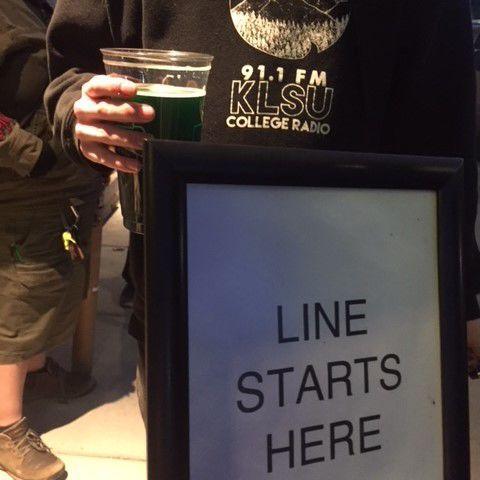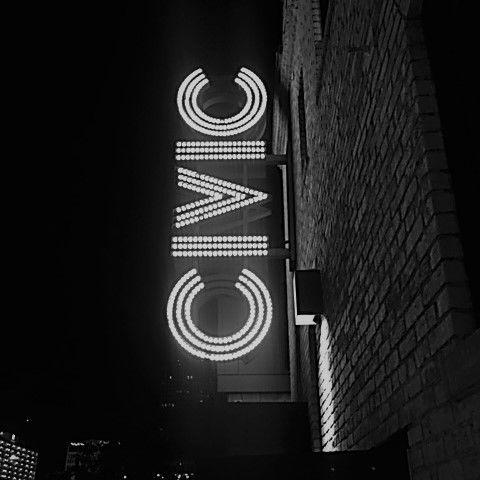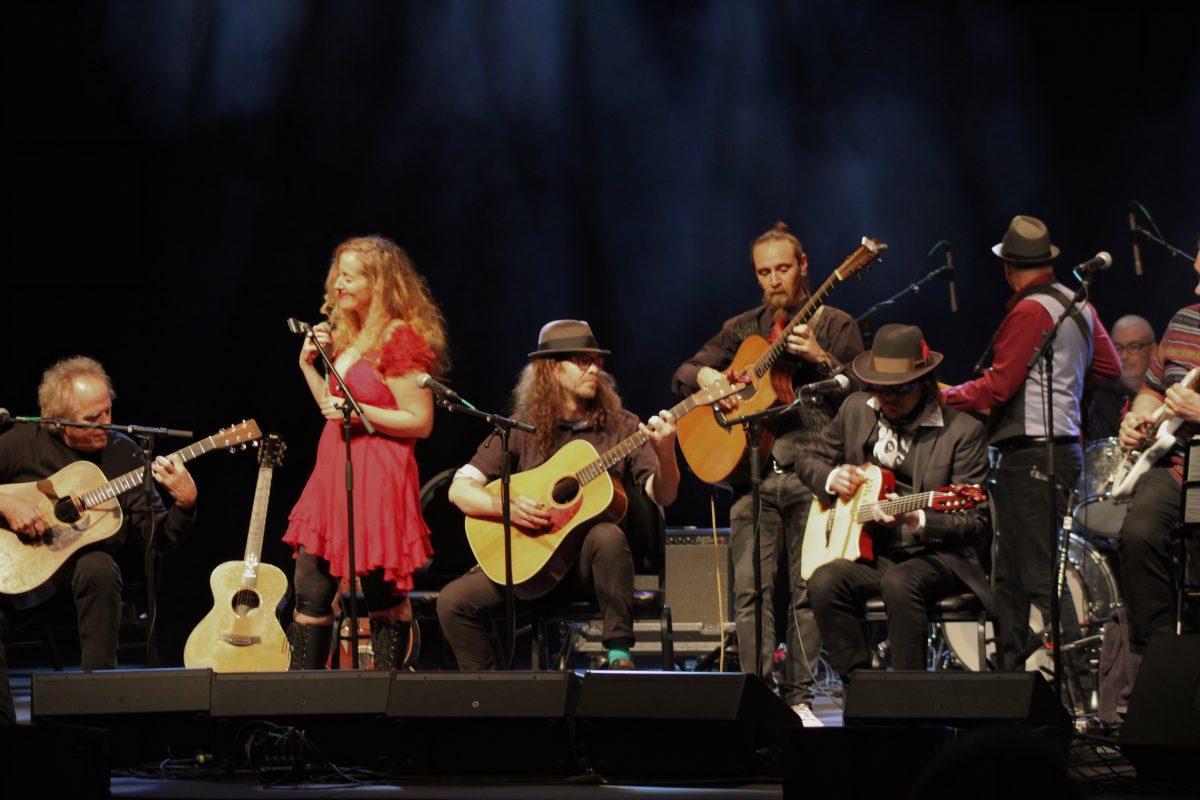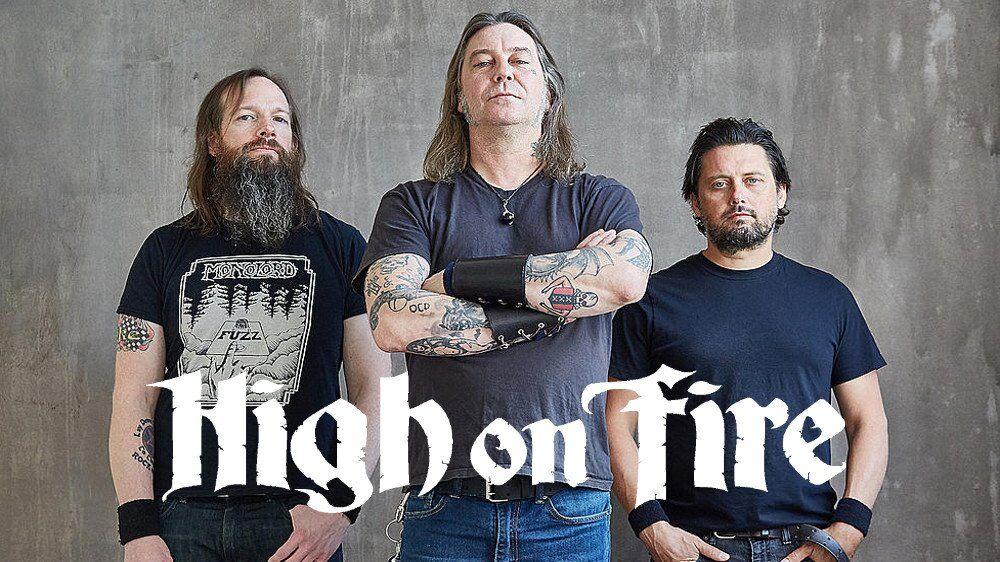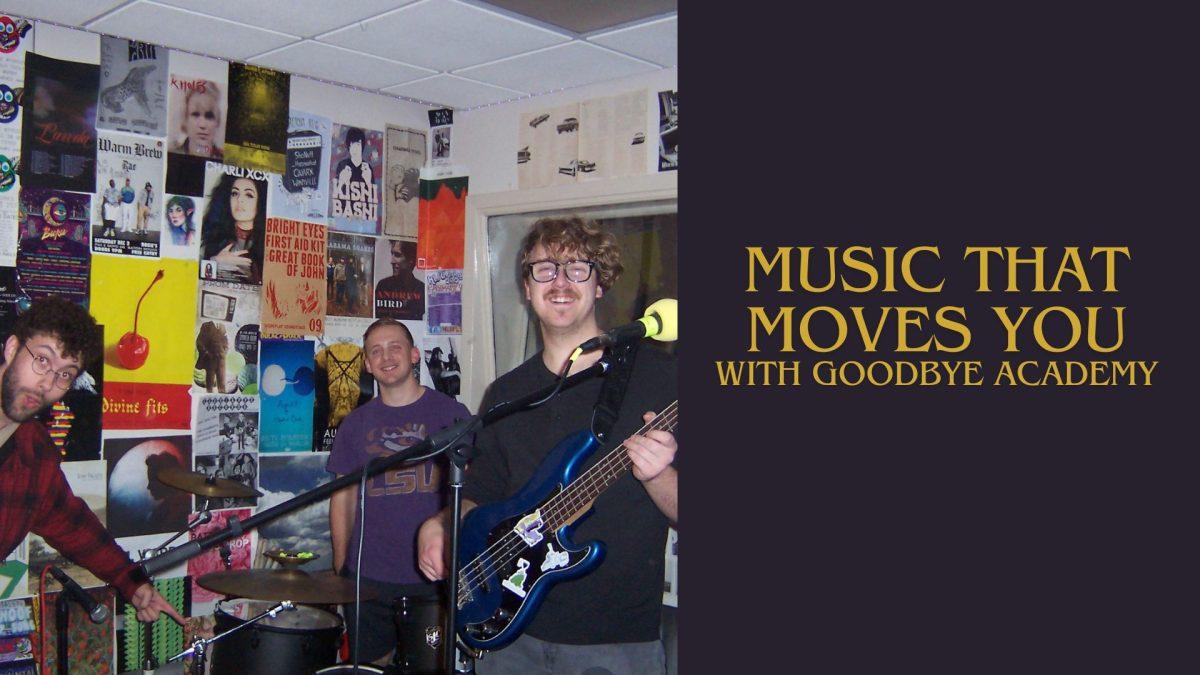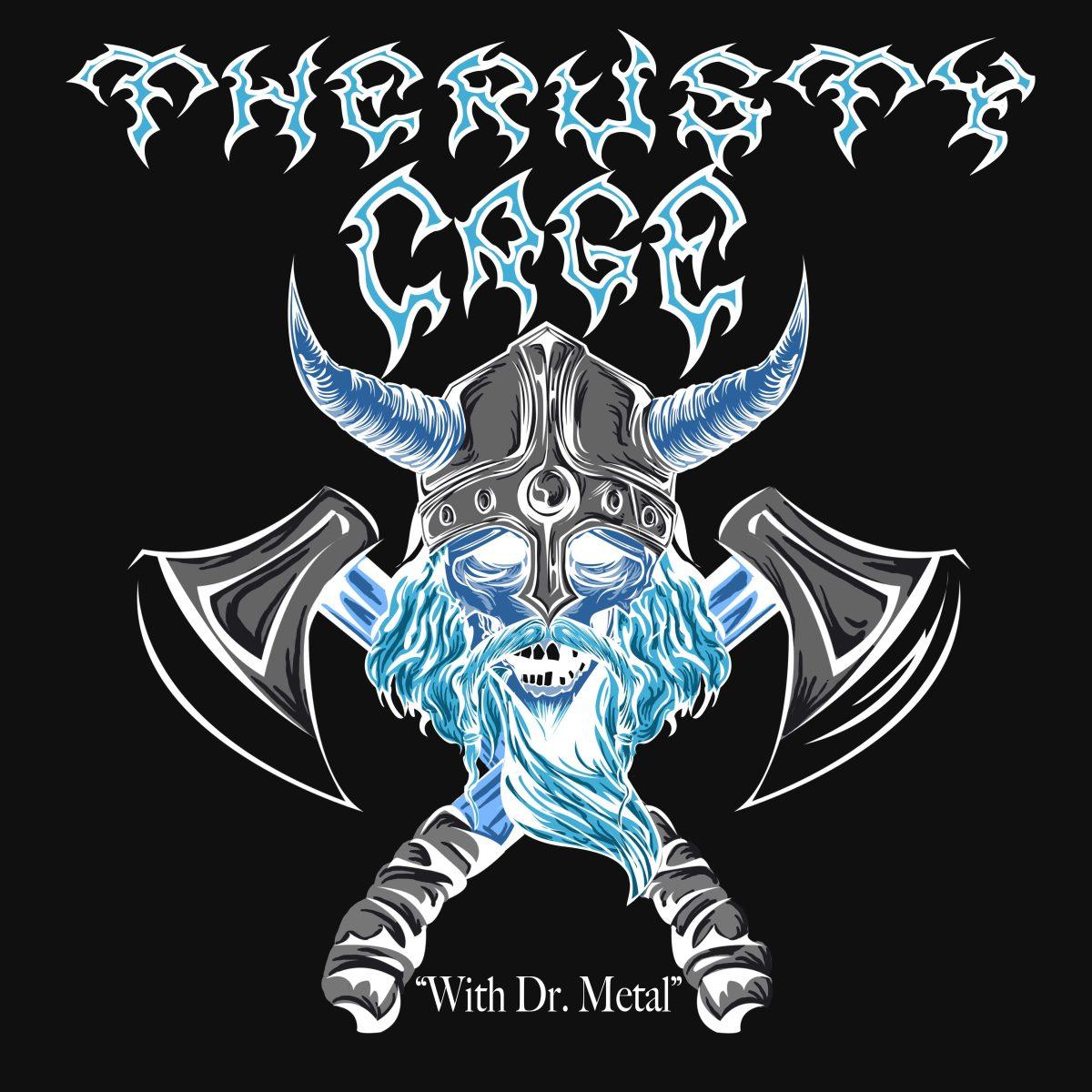heav·y
/ˈhevē/
adjective
- of great weight; difficult to lift or move
- of great density; thick or substantial
- characterized by depth or intensity
- greater in quantity or quality than the average of its kind or class
- stoner metal legends Sleep
There are few experiences as a seasoned concertgoer that leave me trembling even hours after a performance. The deafening guitar…the plodding but pummeling drums…the thunderous, groovy bass…and the hypnotic vocals of a 21st-century hippy standing in front of a towering stack of Marshall amplifiers…it is an unworldly experience that induces a seemingly limitless euphoria. I am in a trance-like state for the entirety of the performance, and my ears are still ringing even days after the last final note rings out from that hefty solid body guitar. It is like undergoing a drug-filled celestial voyage into the ether.
It has been less than three years since I first discovered Sleep…and only nine months since I had the good fortune of seeing them live in concert for the first time.
Sleep are the godfathers and standard-setters of the metal subgenre known as stoner metal, an offshoot of the doom metal pioneered by Black Sabbath and later popularized in the 1980s by bands such as Pentagram, Trouble, Witchfinder General, Candlemass, and others. They are not the most accessible band, even for metal fans. I thought my previous exposure to death metal could prepare for me for nearly anything. But alas, I was not quite sure what to make of Sleep after first hearing their music. The musicianship is nearly devoid of harmony or melody. The arrangements are marked by length, drawn out passages that construct a mesmerizing and spell-binding effect. It would be erroneous to label their droning sound as sleep-inducing, despite the inclination to make such an obvious pun, because everything is so colossal and immense. It is impossible to slumber during the midst of such crushing music.
Sleep was formed in San Jose, California, in 1990 under the original name of Asbestosdeath. Vocalist/bassist Al Cisneros, drummer Chris Hakius, and guitarist Tom Choi consisted of the original lineup before expanding to a quartet with the addition of guitarist Matt Pike. Choi left the band shortly after and was replaced by guitarist Justin Marler. With the addition Marler, the band officially disbanded the Asbestosdeath moniker in favor of the name Sleep. Despite their age and relative lack of experience, Cisneros, 17, and Pike, 18, quickly established a reputation among the metal underground with the release of 1991’s Volume One. Though not a particularly noteworthy record, the album showed a great deal of promise given the band’s incredible youth.
Marler left the band in favor of becoming a monk and thereby left the band as a trio. In 1992, Sleep’s sophomore release was recorded at Razor’s Edge Sutio in San Francisco. The material was sent as a demo to the famed underground independent label Earache Records. Earache loved the material so much that the band was signed immediately and the demo was released as received. The raw sounding Sleep’s Holy Mountain placed the band at the forefront of the burgeoning stoner metal/rock scene that reached from Seattle (Melvins) to Palm Desert (Kyuss) and across the pond to England (Cathedral). On the heels of their success, Sleep was poised to launch a worldwide revolution of slower tempos, heftier riffs, and cannabis-inspired lyrics, that countered the technical playing and frantic pace of the extreme metal subgenres.
The band began writing while touring overseas and spent nearly four years composing what would eventually be an hour-long single track. However, the band was not permitted to enter the studio until 1996 due to the lingering contract with Earache. In 1996, the band signed on with London Records under the promise of absolute artistic freedom. Sleep struggled with the length of the material, constantly rerecording in an attempt to alter tempo or arrangements. The relentless of presence of marijuana likely did little to speed up the recording process.
The completed material was eventually submitted to London Records executives who viewed the record as a bloated, unmarketable product. Despite significant protests and objects from the band, most notably Cisneros, the music was edited and remixed to form a more commercially appealing release. Sleep disbanded as a result of their ongoing struggles and frustrations with London Records. The album was then shelved for some time before being released in 1999. Significant remixes and editing resulted in the release of the condensed and much-maligned Jerusalem, more than twenty minutes shorter than the original copy recorded by Sleep. The album was also split into six tracks rather than maintaining the original release, a single, continuous track referred to by the band as Dopesmoker.
Sleep’s seminal release Dopesmoker was released in 2003, eight years after the band first began recording sessions at Record Two Studio in Comptche, California. The 2003 record is seen fans as the definitive version of the band’s epic and extensive composition from those original studio sessions.
In 2009, the band ended their extensive hiatus and reformed with the classic lineup to perform a pair of reunion shows at the All Tommorow’s Parties festival in England. Shortly after, Hakius retired from music altogether to spend time with his family. Sleep recruited famed percussionist Jason Roeder of Neurosis to fill the void left by Hakius. Roeder has remained as a member of both Neurosis and Sleep for the past eight years. Since then, Sleep has released a single, “The Clarity” via an Adult Swim promotion in 2014, and are currently in the process of writing music for what would be the band’s first full-length release of new material in nearly 20 years.
Sleep somehow simultaneously occupies two distinct spaces within the context of contemporary music: 1) as a fringe band within a counterculture movement that is nearly sixty years in the making (heavy metal), and 2) as a cult act that appears to have transcended the “cult” status. At least one of their shirts, either bootleg or authentic tour merchandise, can be seen at nearly every metal concert from San Jose to Nazareth. They are in many ways akin to underground hip-hop legend Daniel Dumile (a.k.a., MF DOOM). Neither act can be viewed as a mainstream staple, but both share an adoration, love, and acclaim by fans that is almost unparalleled. Furthermore, they are highly regarded among their peers as pioneers of the heavy stoner movement. Even the side projects of Sleep, most notably OM and High on Fire, can be viewed as comparable to the revolving door of aliases adopted by DOOM.
***
The Witchfinder and I arrive at the box office of the Civic Theater more than an hour before the doors are set to open at 7 P.M. It’s a cool, overcast winter evening in the Crescent City. The streets of the CBD are fairly quiet even in the midst of Mardi Gras season. Much to our surprise, there only a couple of devout fans standing outside of the venue in anticipation of the first major metal show of 2017. We secure our well-deserved place, at the front of the line, and begin discussing our growing anticipation to see Sleep live.
After standing around for a few minutes, I find the Witchfinder’s mouth agape and see his bulging eyes in awe of what must surely be a splendid sight. I turn around to find both Pike and Cisneros walking just feet from us towards their rental car. The Witchfinder simply utters the word “Matt”, thereby prompting the guitar god to turn around to acknowledge his fan’s recognition. Speechless, I unconsciously raise the devil horns in support of Pike, who replies with his own metal-tinged gesture.
The temperatures begin to drop as the sun descends into the western sky. The Witchfinder and I are now growing eager, and a wee bit anxious, to enter the venue. We each discuss our strategy for securing a concert t-shirt and a prime spot near the stage. During my first Sleep concert, I arrived late and therefore was forced to bypass the merch table in order to get as close as I could to the stage. I wound up being a few rows back from the barricades, something I am not accustomed to, and thereby missed out on a chance at a Pike pick. Much to my chagrin, upon exiting the venue I made the terrifying discovery that all of the merchandise had been sold out. Therefore, I left the show at Houston’s White Oak Music Hall empty-handed (with the exception of the setlist). I swore that I would rectify my mistakes from my previous show and have as an enjoyable and satisfying of an evening as possible.
By 7 o’clock the doors remain closed. The line outside the Civic Theater has now grown, but still pales in comparison to the Primus show months prior. Our insatiable hunger for guitar riffs stirs the Witchfinder and myself into a maddened frenzy. Both of us feel close to reaching a breaking point…but then, suddenly, the venue’s staff signals us to move forward.
We hurry through the security check. I find myself streaking up the ramp and through the double doors into the main lobby. I notice that I have left the Witchfinder and the other concertgoers behind in the dust. A mile-wide, shit-eating grin stretches across my face. I arrive to the merch table, first in line, and finally purchase the green-colored shirt I have been coveting for nearly a year. A special edition baseball jersey shirt bearing a bong-huffing astronaut catches my eye as well. I quickly pay for my treasured items and flee in a state of excitement and sheer elation. I rush past the bar, through a door, and down a brief flight of steps to find that only two other individuals have made their way to the floor. I arrive at stage left, directly in front of Pike’s monitor, and shake my fist in a celebratory, albeit obnoxious, manner. Eventually, the Witchfinder follows suit and joins me at the barricade.
I turn to my right and notice a father and son who seem a bit familiar upon initial glance. The father, presumably noticing my glance, says, “Nice to see you again.” And then it hits me…I stood directly behind the father and son only six months ago on a sweltering July afternoon in Houston. The three of us stood outside the Revention Music Center for hours in anticipation of seeing Megadeth and Meshuggah. We reminisce about the past show for a bit, share our excitement for Sleep, and then discuss which Slayer performance we will each catch this summer.
Sludge legends Thou treat the growing audience to brief but heavy opening set. The Witchfinder and I last saw the Baton Rouge locals at One Eyed Jacks while opening for Boris. Despite their lack of headlining success, Thou always manages to tie themselves to some of the most well-respected artists in metal.
Finally, the moment draws near…the NASA launch sequence commences and the fog machines signal that Sleep is preparing to arrive on stage. This extended prologue seems to last for damn near an eternity. The Witchfinder and I find ourselves nearly unable to bear another moment of anticipation. The entire floor of the Civic Theater has now filled to the brim…marked by one of the most diverse and eccentric crowds I have seen to date.
From my position in the crowd, I can occasionally see Pike passing through the back corridor behind the stage. I admittedly find myself irrationally irritated by the presence of his shirt. I confide in the Witchfinder that I have an explainable sense of satisfaction whenever I see a shirtless Pike.
And at long last the wait is over. Cisneros enters from stage right, Pike from Stage left, and Roeder climbs behind his kit. Pike straps on his guitar and immediately begins to crank up his Marshall stack. A roaring wave of feedback emits forth and mutes nearly all other sounds. The first note rings out from Pike’s Gibson to signal that all ear drums within a half-mile radius will never be wholly intact again.
The trio rips into “Holy Mountain”, the title track from their second LP, to beckon, or perhaps demand, that everyone in attendance join them on the impending sonic voyage. The Witchfinder and I begin to sway like two fully-clothed and arrhythmic strippers who have no interest in receiving any sort of tips. Though fully sober, I feel myself being transported to a smoke-filled land consumed by some of the most hypnotic and soothing sounds imaginable. My head bobs along, at times seemingly limp and unattached from my spine. I struggle to determine whether or not to head-bang along to Pike’s crunchy riffs or Roeder’s groovy drumming. I ultimately alternate back and forth between the two, eventually realizing that both instruments are well in-sync throughout the entirety of the song.



